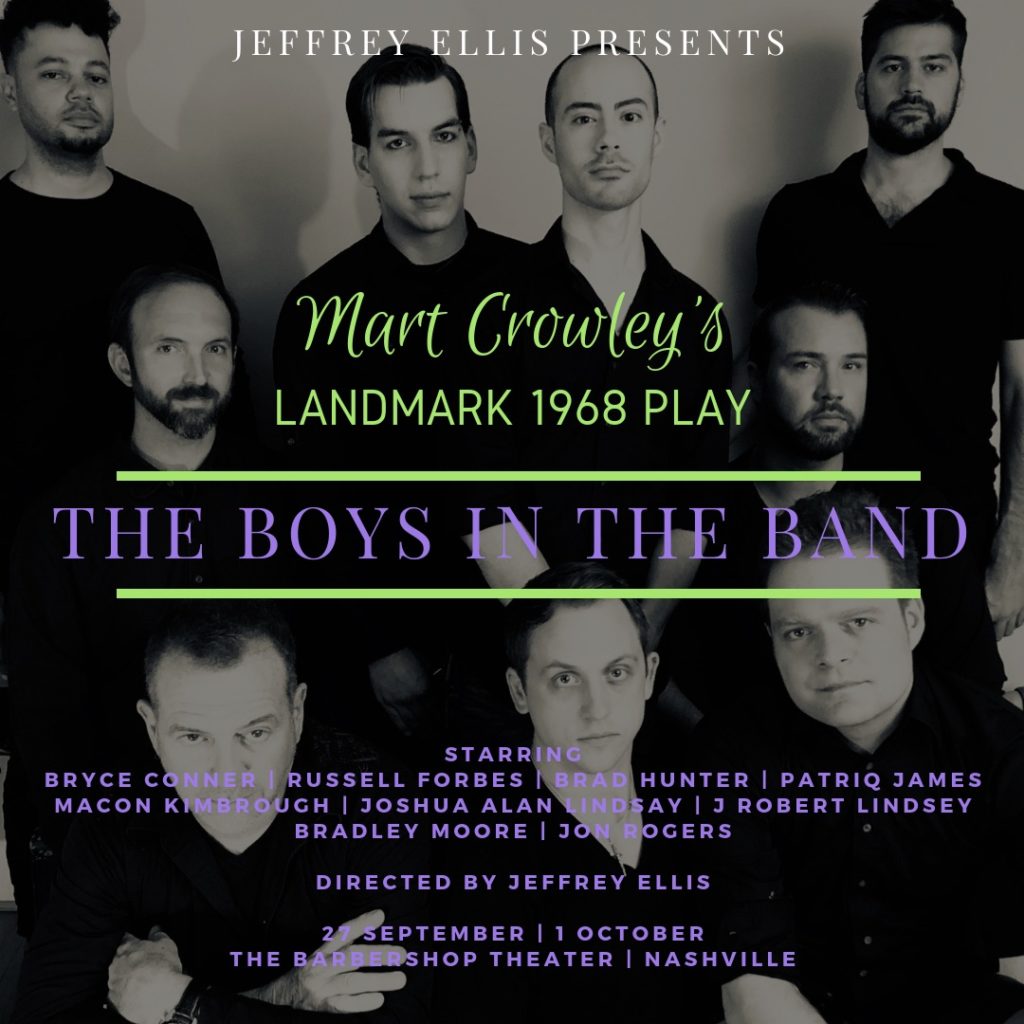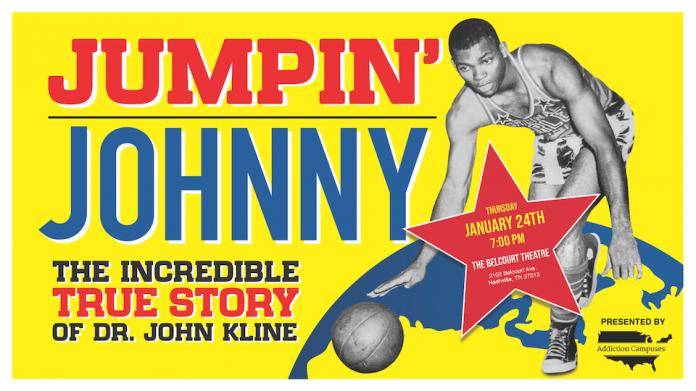
With a history fast-approaching a full century, you’d be hard-pressed to find anyone who isn’t at least somewhat familiar with the famed Harlem Globetrotters. While his name may not be initially as recognizable as some of the more famous former Globetrotters like Wilt Chamberlain, Marques Haynes or Meadowlark Lemon, Dr. John “Jumpin’ Johnny” Kline’s legacy on and off the court is indeed the stuff of legends. To that end, earlier this week, as local filmmaker Cameron McCasland and Addiction Campuses prepared for their SOLD OUT January 24th debut screening of Jumpin’ Johnny: The Incredible True Story of Dr. John Kline at Belcourt Theatre, I had the opportunity to speak with the filmmaker for my latest Rapid Fire 20 Q.
———————————————
RAPID FIRE 20 Q WITH FILMMAKER CAMERON McCASLAND
JHP: Before we get into talking about your documentary, Jumpin’ Johnny, I just have to admit…in my youth, I remember the Harlem Globetrotters being everywhere from occasional local exhibition games and being animated for their own Saturday Morning cartoon (as well as a few episodes of Scooby-Doo) and starring in their own live-action variety series and the third and final Gilligan’s Island reunion movie, The Harlem Globetrotters on Gilligan’s Island. (I may or may not own that iconic film on DVD) What’s your first memory of the basketball legends and why have they endured for nearly 100 years?
CAMERON McCASLAND: I think I’m in the same boat as you on that. Scooby Doo and Gilligan are among my first memories. And I remember they used to air at least a game a year on television that would come on right after Saturday morning cartoons. I think the Globetrotters endure because of tradition at this point. My good memories as a kid turn into me wanting to take my own children to a game, and in turn I’m certain they will do the same when the time comes.
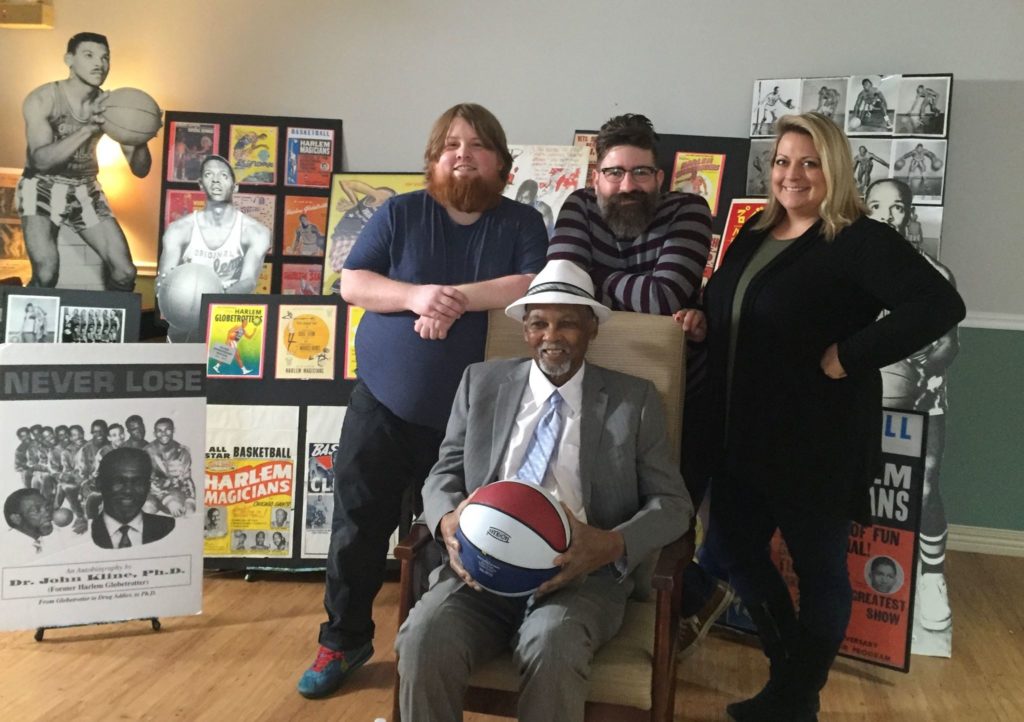
JHP: How did doing a documentary about former Harlem Globetrotter, Dr. John “Jumpin’ Johnny” Kline come about?
CAMERON McCASLAND: I went to work for Addiction Campuses in January of 2018. Erin Dineen the creative director wanted to try new things, and she thought I was a good fit for that. The Globetrotters were coming to town at the end of the month (as they do every January in Nashville). So I was looking for a way to talk to one of those guys. Doing a little research online led me to Dr. Kline’s story. He was staying just north of town, and I did a little detective work to track him down and get him on the phone.
JHP: Was the project always intended as a full-length documentary, or did that evolve over time?
CAMERON McCASLAND: Well, yes and no. I knew I wanted to make something long form at Addiction Campuses. We had already put in motion a few docu-series that we made monthly last year. I didn’t know if this would fit into that, but I knew I wanted to talk to Dr. Kline. We did an almost five hour interview, which was quiet exhaustive for a man of 86 years old. Afterwards, I read his book, and started reaching out to people. It took on a life of its own. It was just the three of us, Myself, Erin and Josh Ickes, who I have collaborated with on several previous projects. We just kind of went all in.
JHP: How does Dr. Kline’s story connect to Addiction Campuses and their mission?
CAMERON McCASLAND: Addiction Campuses’ ultimate goal is to see people lead healthy lives and break the chains of addiction from drugs and alcohol. Dr. Kline had already been doing this both personally and professionally for longer than I have even been alive. It just seemed like a good fit. He saw this as a opportunity to educate, and we were willing students.
JHP: I can’t imagine it was too easy to connect with a former sports star who had long-since been retired. How did you track him down?
CAMERON McCASLAND: Dr. Kline has a long paper trail in terms of newspaper articles and was still somewhat active on the web. He had done a commercial for a rehab facility in Madison Tennessee. I reached out to them, but he had left months before. I was able to sweet talk one of the care givers to pass my information on to one of his family members, as they couldn’t give me his info due to privacy. From there it was a matter of a few phone calls with his family that gained us an audience.
JHP: When you finally did find him, what was that initial phone call like?
CAMERON McCASLAND: He was very humbled that I knew about his basketball career. He expressed to me that he had always hoped he could make a movie of his life, but had been disappointed with some false starts over the years. He wanted to tell the whole story, and I tried to find a balance between getting to know some initial details while at the same time wanting to hold off some of that story until we could put it on camera. When we met face to face I was impressed with how dapper he was. He was ailing from some foot surgery, but really pushed through that day to tell us all he could. Over the next six months I would visit him and we talked on the phone weekly. I’m thankful to have made him a friend, and I think by the end he trusted me to help tell his story.
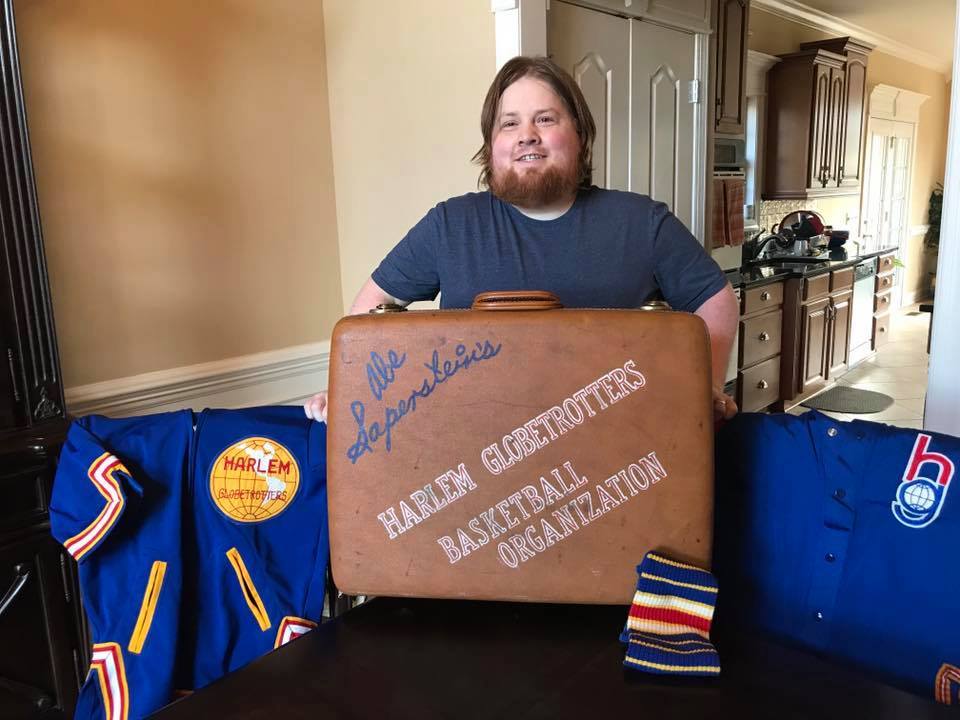
JHP: Was it difficult to pursued Dr. Kline to agree to take part in the project?
CAMERON McCASLAND: No, not really. I think having a organization like Addiction Campuses backing this project helped with that. It was easy for him to look at what they were doing, and seeing that they had the same hope he had for people who are suffering from addiction. He was just anxious for us to get it right.
JHP: You mentioned that lengthy first interview earlier. Tell me a little more about that?
CAMERON McCASLAND: Once we talked on the phone, I went to where he was staying and interviewed him on camera for almost 5 hours. Like I said before, you don’t ever know what something is until you start when it comes to documentary work. You just have to follow the story. So I just let him tell me what he wanted, and I’d chase him down the rabbit holes with follow ups. I honestly feel like it never stopped, as even when we were done he was in constant contact. I’d find an old article on him and read it to him, and he’d tell me he had not thought of that in 50 or 60 years. Then he’d fill in the gaps. His memory was excellent.
JHP: What was it like to sit down with someone who’d lived such a remarkable life?
CAMERON McCASLAND: A bit surreal. I see a lot of myself in Dr. Kline in that I worry about things like legacy, and I try to save everything that I think someone might care about later. It became very personal to me in that way. And it is a bit strange to hear about him talking about other basketball legends like Meadowlark Lemon, Goose Tatum, or Marques Haynes. Guys I had seen on Scooby-Doo as a kid. They were just his old friends. It’s like having breakfast with Superman in that way.
JHP: Were you surprised by how forthcoming he was about his past, or did you expect that, considering he had become an advocate for drug addiction recovery?
CAMERON McCASLAND: That really developed over the course of the interview. He has a few go-to stories that are in his books (he authored sixteen books). He told us those, and then I’d follow up. I think he was surprised at some of the details I had already uncovered. That brought a certain trust to the situation. I had a lot of respect for him, and he re-payed that by being very candid. So many of his team mates had already passed on, he was ready to tell it all, and trusted us to do right by him. I feel like we have honored that.
JHP: Speaking of his past, Dr. Kline has been honored with several sports-related accolades, including being inducted into his alma mater, Wayne State University’s Hall of Fame, the African American Sports Hall of Fame, the Globetrotter Legend Award. What was his reaction when asked about his own accomplishments on the court?
CAMERON McCASLAND: It’s funny because there was a duality in Dr. Kline. When you talked to him about basketball, he would tell you that was great. He was very matter of fact about that. But when it came to his work in the recovery community he was very humble and always would talk about the strength of other individuals to battle their addictions. He was very proud of his accomplishments on the court, but even more of the things he did afterwards.
JHP: Other than the first person interview, what other resources filled in the blanks during your research?
CAMERON McCASLAND: I read his books of course, and I went to the web and newspaper archives. I spent some time in the microfiche in the library which is a skill I think that has been lost to researchers and documentary film makers because the web is so much simpler. I also had access to his personal writings and digitally archived hours of old VHS tapes of things he had done over the past 30 years. I watched, read, and researched it all. I really lived in this mans journals and papers for the last year. And its funny because I have been able to share things with his family that they didn’t know.
JHP: In addition to Dr. Kline, who else did you interview for the project?
CAMERONN McCASLAND: We talked with Sharon Hill. Dr. Klines daughter who had a lot of insight to him. We also talked to Ernie Wagner who grew up with Johnny and played with him at both Wayne State and with the Globetrotters. We also talked to sports writers Chris Dortch and Ron Wynn. And Michael “Memphis” Douglas who is a former Harlem Globetrotter that currently tours the country with his organization the Harlem Legends. He gave us a lot of perspective on the pressures athletes face, and the impact they can have when using their voice.
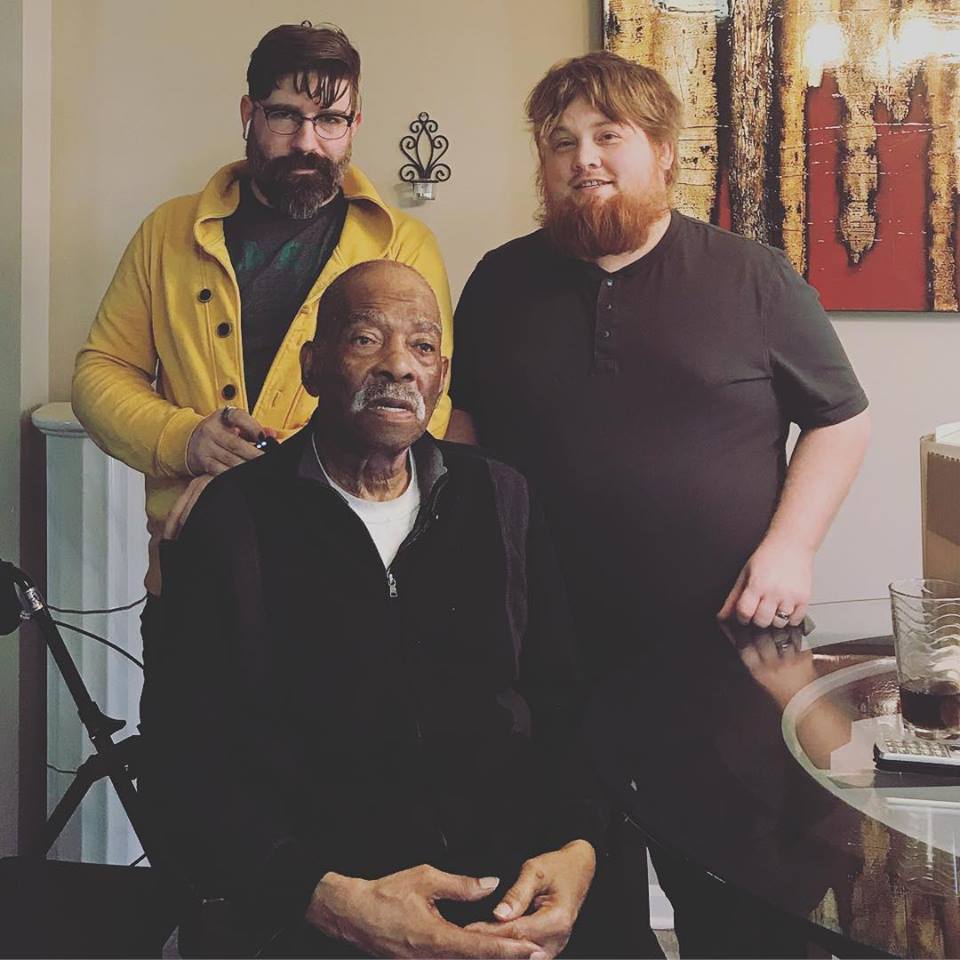
JHP: Without divulging details, was there anything that was off limits during any of your interviews?
CAMERON McCASLAND: No not at all. It was kind of funny because their were some things Ernie would say out loud and then would say “I probably should’t tell that, but he’s dead anyways now.” I think both Johnny and Ernie knew that they were the last guys who could tell the tale from a first person point of view. I could make an entire other film just chronicling Ernies later life.
JHP: I understand Dr. Kline was nearly blind by the time you first met him and you mentioned earlier that as you began digging through old newspaper archives, you’d read them to him during subsequent phone conversations. Did those conversations spark further memories?
CAMERON McCASLAND: Yes, they did. Johnny’s mind was very sharp all the way to the end, but his eyes had started to go. He could read if you held something very close to his face, but he got a lot of joy when I would call him with an article that talked about his basketball days. A lot of that stuff he had not seen before as they globetrotters played nightly so by the time the game was over they were on the bus and didn’t see the newspapers that came the next morning. And for every name mentioned he had a story about those guys. It was truly fascinating.
JHP: How often did you speak with him during the course of preparing for the documentary?
CAMERON McCASLAND: It was at least weekly. I’d call him to ask questions, and he would call me to check on how things were moving along. He talked Ernie into speaking with me. Ernie had been cautious over the years as his life had been filled with criminal activity and he wanted to protect his family. I’d go visit Johnny in his daughter’s home and we would have long conversations.
JHP: Sadly, as you referenced above when quoting his friend, Ernie, Dr. Kline passed away summer of last year. How far into the process of the documentary were you at the time of his death?
CAMERON McCASLAND: We had been making the movie for about six months. He knew it had grown into a full length feature film which excited him. We all wanted him to see it, but I think he was pretty content just knowing that it was happening. He’s the one person who didn’t need to see it, as he had already lived it. And it’s hard to squeeze 86 years of life into a 90 minute movie. I feel like it’s an honest portrait, but he was so much bigger than this movie ever could be.
JHP: I guess you could say you’ve had your own Tuesday’s With Morrie with Dr. Kline. Is there one thing he said to you, or one idea he expressed during your conversations that you keep going back to and thinking about?
CAMERON McCASLAND: His life long mantra was “Never lose.” To me, that means that when things don’t go the way you wanted, you use it as a learning experience and try again. When I saw Dr. Kline for the last time, he was asking me to bring him books about cooking for health. Even on his death-bed he was anxious to learn. I think that’s what I’ll always admire about him most. He was a student until the end.
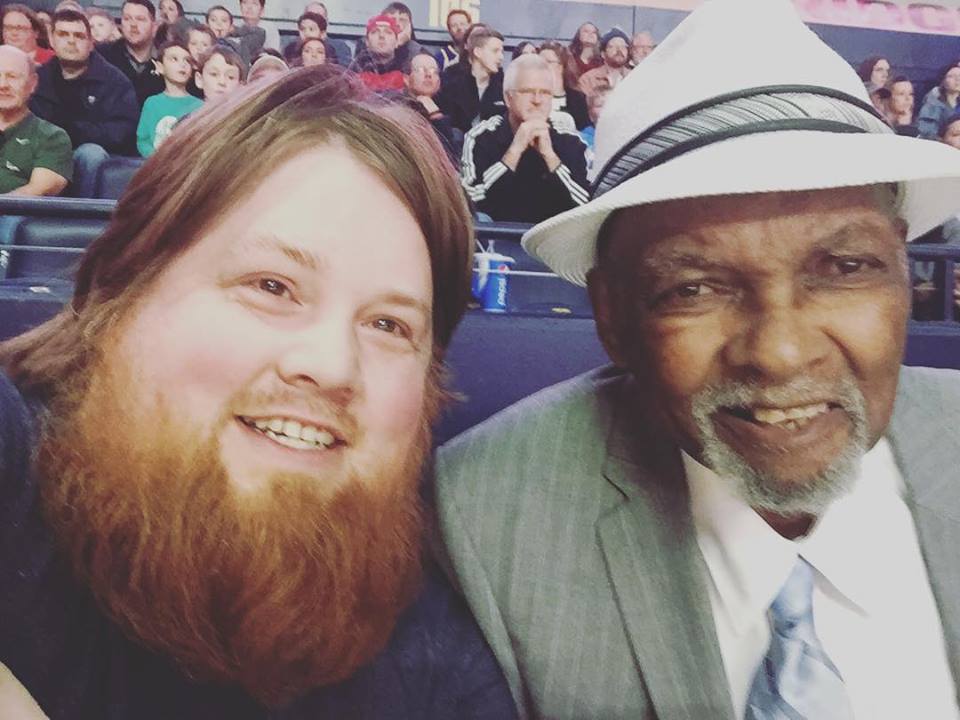
JHP: What all do you have in-store for Thursday’s screening at Belcourt?
CAMERON McCASLAND: I think this premiere at Belcourt is going to be a living send off for Johnny as well as introducing him to a whole new generation of people. Addiction Campuses really has pulled out all the stop for this one. The movie is already sold out, and those that were lucky enough to get a ticket are going to go home with posters and trading cards and a few lucky people will get some other cool stuff including tickets to the upcoming Globetrotters game. Additionally I think the Q&A will be eye opening.
JHP: Following Thursday night’s World Premiere Screening of Jumpin’ Johnny, what’s next for the film?
CAMERON McCASLAND: The plan is for the film to go out on the film festival circuit for 2019. We want to put it in front of as many eyes as possible with the hope it will inspire people to find healthy paths to recovery. I think this movie has the power to do that.
———————————————
To learn more about Jumpin’ Johnny: The Incredible True Story of Dr. John Kline, CLICK HERE. For details about Addition Campuses, their mission and services, CLICK HERE or follow them on Facebook, Twitter and Instagram. For more about filmmaker Cameron McCasland, CLICK HERE or follow him on Twitter and Instagram.
As always, if you are interested in coverage for your latest entertaining endeavor, simply click the contact page and drop me a note. You can also follow JHP Entertainment on Instagram and Facebook.
